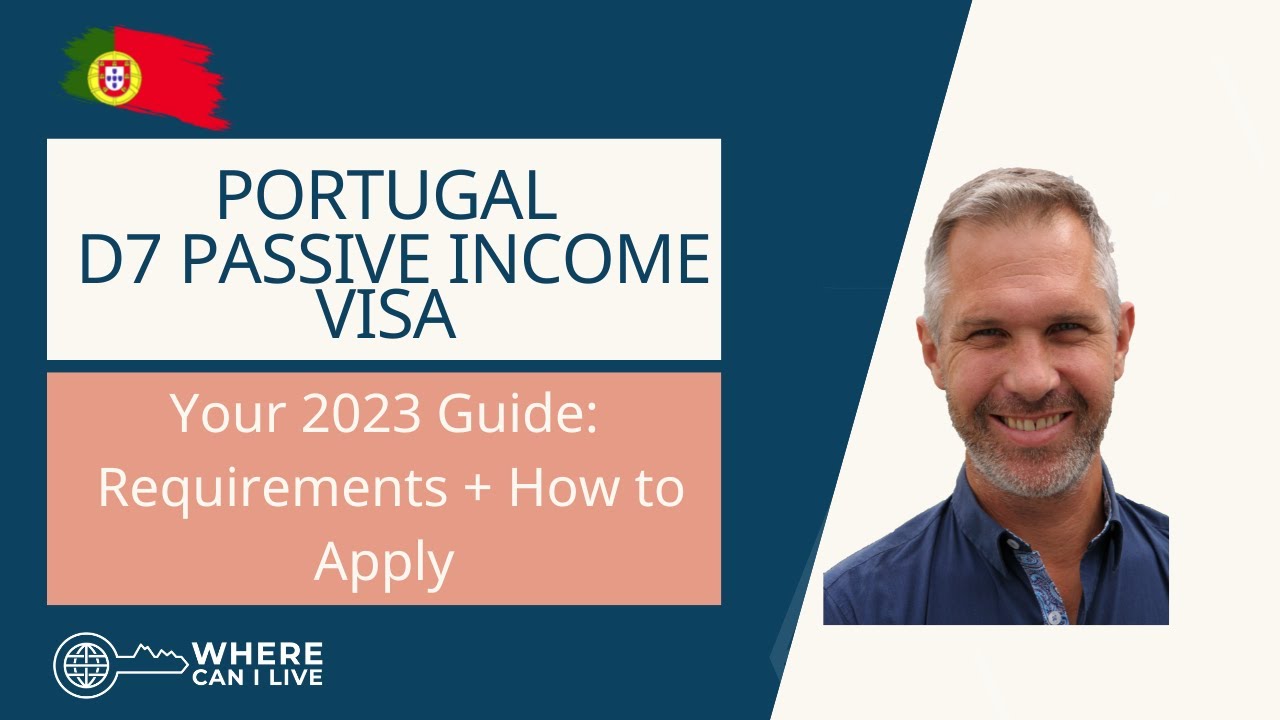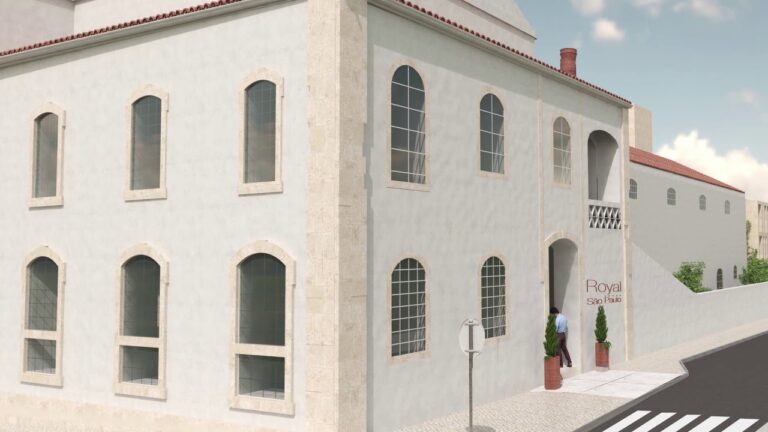Portugal’s Golden Visa: D7 Visa Requirements
Picture yourself walking down the charming cobblestone streets of Lisbon, sipping on a cup of strong coffee and indulging in a crispy pastel de nata. The sun is shining, and the people around you are friendly and welcoming. You can’t help but feel at home in Portugal.
I’ve had the privilege of experiencing the beauty and richness of living in different countries around the world. However, Portugal holds a special place in my heart, and one of the reasons for that is the D7 visa.
The D7 visa is a residency visa that allows non-EU citizens to live in Portugal for a period of one year, with the possibility of renewing it for additional periods of two years. It’s an excellent option for retirees, digital nomads, and anyone looking to enjoy the Portuguese lifestyle while also taking advantage of its affordable cost of living.
But, as with any visa, there are requirements that must be met. From my own personal experience, I can tell you that the process of obtaining a D7 visa can be a bit overwhelming and confusing. That’s why I’ve decided to share my knowledge and insights to make the process easier for others.
In this article, I will guide you through the D7 visa requirements, including the financial requirements, health insurance, criminal record check, and more. I’ll also share some tips and tricks that helped me navigate the process and ensure a smooth transition to my new life in Portugal. So, grab yourself another pastel de nata, sit back, and let’s dive into the world of D7 visas in Portugal.
Who is eligible for D7 visa in Portugal?
If you’re planning to move to Portugal, you may have heard about the D7 visa, which is a temporary residency visa for non-EU citizens who wish to live in Portugal for a year or more.
What is the D7 visa?
The D7 visa is a type of temporary residency visa that allows non-EU citizens to live in Portugal for up to two years, with the possibility of renewing for an additional three years. This visa is designed for individuals who have sufficient means of support and do not need to work in Portugal.
Who is eligible for the D7 visa?
To be eligible for the D7 visa, you must meet the following requirements:
- Have a minimum income of €7,620 per year (or €639 per month) for an individual applicant, plus an additional 50% for each dependent family member
- Have a valid health insurance policy
- Have a clean criminal record
- Not be on the Portuguese Immigration and Borders Service’s list of undesirables
- Provide proof of accommodation in Portugal
It’s also worth noting that the D7 visa is intended for individuals who have passive income, such as retirement pensions, rental income, or investments. You do not need to have a job in Portugal to be eligible for this visa.
How to apply for the D7 visa?
To apply for the D7 visa, you will need to submit the following documents:
- A completed application form
- A valid passport
- A criminal record certificate from your country of origin
- A health insurance policy that covers Portugal
- Proof of accommodation in Portugal
- Proof of sufficient means of support
You will also need to pay a visa application fee, which can range from €75 to €200 depending on your nationality and the length of your stay.
Is Portugal ending the D7 visa?
If you’re considering a move to Portugal, you may have heard rumors that the country is ending its D7 visa program. This has caused concern and confusion among many expats who are currently planning their move or who have already made the move to Portugal.
First, let’s start by explaining what the D7 visa is. The D7 visa is a type of long-term visa that allows non-EU citizens to live in Portugal for up to one year. It is designed for retirees, freelancers, and other independent workers who can support themselves financially. To qualify for the D7 visa, applicants must meet certain requirements, including having a certain amount of income, assets, or savings.
Now, back to the question at hand – is Portugal ending the D7 visa? The short answer is no, Portugal is not ending the D7 visa. However, there have been some changes to the program that have caused confusion and concern among expats.
In 2020, the Portuguese government made changes to the D7 visa program that raised the minimum income and asset requirements for applicants. This caused some concern among expats, as it made it more difficult for some people to qualify for the visa. However, the program is still in place, and it is still possible to apply for and obtain a D7 visa.
It’s important to note that the D7 visa is just one of several visa options available for non-EU citizens who want to live in Portugal. Depending on your situation, there may be other visa programs that are a better fit for you. For example, if you’re planning to start a business in Portugal, you may qualify for the entrepreneurial visa. If you’re a student, you may be able to obtain a student visa.
In addition to visas, there are many other factors to consider when planning a move to Portugal. For example, you’ll need to find a place to live, navigate the healthcare system, and adjust to the local culture. It can be a daunting process, but with some research and planning, it’s definitely possible.
As someone who has gone through the process of moving abroad myself, I know that it can be both exciting and challenging. It’s important to do your research and make informed decisions, but also to be open to new experiences and to embrace the adventure of living in a new country. I wish you all the best with your move to Portugal – boa sorte!
How long do I have to stay in Portugal for D7 visa?
If you are considering moving to Portugal, you may have heard of the D7 visa. This visa is designed for individuals who wish to retire, live, or invest in Portugal. It allows you to reside in the country for an extended period, but how long do you need to stay?
D7 visa requirements
Before we dive into the length of stay, let’s review the basic requirements for the D7 visa:
- You must be a non-EU citizen
- You must have a stable income source
- You must have health insurance that covers you in Portugal
- You must have a criminal record certificate from your home country
- You must not have any outstanding debts in Portugal
Length of stay
Now, let’s get to the question of how long you need to stay in Portugal for the D7 visa. The answer is that there is no minimum stay requirement. However, you must spend at least 183 days in Portugal per year to maintain your residency status. This means that you can travel outside of Portugal for up to six months each year, but you must spend the majority of your time in the country.
It’s important to note that the D7 visa is valid for two years and can be renewed for an additional three years. After five years of holding the D7 visa, you may be eligible to apply for permanent residency or citizenship.
Final thoughts
The D7 visa is a popular choice for individuals who wish to retire or invest in Portugal. While there is no minimum stay requirement, you must spend at least 183 days in Portugal per year to maintain your residency status. It’s important to consult with an immigration lawyer or specialist to ensure that you meet all of the requirements and understand the process.
Living abroad can be challenging, but it can also be incredibly rewarding. From navigating the visa process to finding a home, there are many factors to consider. Remember to take things one step at a time and to be patient with yourself as you adjust to your new life in Portugal.
Do you pay tax with a D7 visa in Portugal?
If you’re considering moving to Portugal and applying for a D7 visa, you may be wondering about the tax implications of living in the country. The good news is that, as a D7 visa holder, you may be eligible for certain tax benefits.
What is a D7 visa?
A D7 visa is a long-term visa that allows non-European Union citizens to live in Portugal for up to two years. To be eligible for a D7 visa, you must meet certain requirements, such as having a regular income or sufficient savings to support yourself and any family members who are also moving to Portugal with you.
Do you pay tax with a D7 visa in Portugal?
As a D7 visa holder, you may be exempt from paying income tax in Portugal for the first 10 years. This exemption applies to income earned outside of Portugal, such as pensions, investments, and rental income. If you earn income in Portugal, you will be subject to the country’s tax laws.
It’s important to note that tax laws are subject to change, so it’s always a good idea to consult with a tax professional to get the most up-to-date information on your tax obligations as a D7 visa holder.
Other tax considerations for D7 visa holders
While you may be exempt from income tax in Portugal, you may still be required to pay other taxes, such as property tax or value-added tax (VAT) on goods and services.
Additionally, if you decide to start a business in Portugal, you will be subject to the country’s corporate tax laws. Again, it’s important to consult with a tax professional to understand your obligations.
obtaining a Portugal D7 visa provides an excellent opportunity for individuals who wish to experience the rich culture and lifestyle that the country offers. The process can be complex, but with proper guidance and preparation, it can be a smooth and rewarding experience. As an expat who has lived in multiple destinations, I can attest to the benefits of investing, living, and working abroad. Portugal, in particular, offers a unique blend of old-world charm and modern amenities that are hard to resist. With its favorable tax system, growing economy, and welcoming people, Portugal has become a popular destination for expats looking to start a new chapter in their lives. I highly recommend considering Portugal as a top option for those seeking a fulfilling expat experience.






